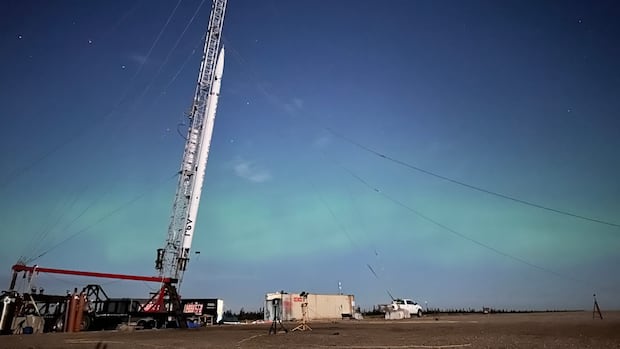Watch Students Launch Canada's First Student-Built Rocket in 25 Years!










2025-08-15T23:07:07Z

Can you believe that a group of university students just achieved what hasn’t been done in Canada for over 25 years? On a stunning morning in Mistissini, Quebec, the Starsailor rocket, built by students from Concordia University, soared into the sky, marking a monumental moment for student-led space exploration!
At precisely 5:34 a.m. ET, on August 15th, the rocket blasted off in a brilliant flash, captivating viewers from all around the globe through a live stream on YouTube. Located approximately 250 kilometers north of Mistissini, this launch site on Cree territory made the event all the more special. The air was thick with anticipation as student Shua Kalmanson exclaimed, “This is insane!” while watching the smoke trail left by the rocket’s separation.
Space Concordia’s president, Simon Randy, joined in on the excitement, declaring, “Now that was the largest student-built rocket ever flown — pretty cool!” This groundbreaking endeavor was not just a feat of engineering; it was a collaborative effort that united the Space Concordia Rocketry Division and the local Cree community.
According to Pamela MacLeod, a council member from Mistissini, when she first heard about the students' request to launch their rocket within their territory, her initial reaction was one of skepticism. “Strange but interesting,” she recalled, but then she recognized the significance of this event. It was not only a chance for the community to witness a remarkable achievement but also to engage with the future of space exploration.
This launch was the team's third attempt. The first two attempts were thwarted by unfavorable weather conditions, but their perseverance paid off. The students had hoped Starsailor would cross the Kármán line, reaching an altitude of 100 kilometers, but during the launch, the rocket separated earlier than anticipated. The true success of the mission would only be known once they were able to analyze the debris and trajectory data, as explained by Concordia professor Hoi Dick Ng.
Designed and constructed by the students at Concordia University, the rocket had to endure numerous tests before its journey to Mistissini, which is a nine-hour drive from Montreal. If Starsailor had ventured far enough, it would become the world’s first student-built liquid-fuel rocket to reach space, making history for Canada.
Regardless of the outcome, professor Charles Basenga Kiyanda affirmed that the launch was a success in its own right. He even woke up his 10-year-old son to witness the event alongside him. “At an experimental stage, this is not a failure. If you get ignition, it's good. We have information that we can work with and improve,” he noted, emphasizing that every small mishap in rocketry can lead to impressive insights.
Hannah Halcro, who has been part of the project since day one, shared her optimism during the livestream, stating, “Everyone is still pretty darn happy.” After all, they’ve transitioned from planning everything in simulations to actually launching a rocket. Over the next few days, the recovery team will work tirelessly to find and retrieve the Starsailor with the assistance of local helicopter pilots.
Originally conceived for a science competition that fell victim to the COVID-19 pandemic, this project blossomed into something historic. With over 700 members contributing since 2018, their ambition was to launch the most powerful student-built rocket, a goal that was validated by a Transport Canada statement earlier this month.
As the sun rose higher, Hannah and her fellow team members celebrated their achievement, basking in the glory of what they had accomplished. “See you in space next time,” she laughed, echoing the excitement of a new generation of dreamers, united by their passion for innovation and exploration.
 Maria Kostova
Maria Kostova
Source of the news: CBC